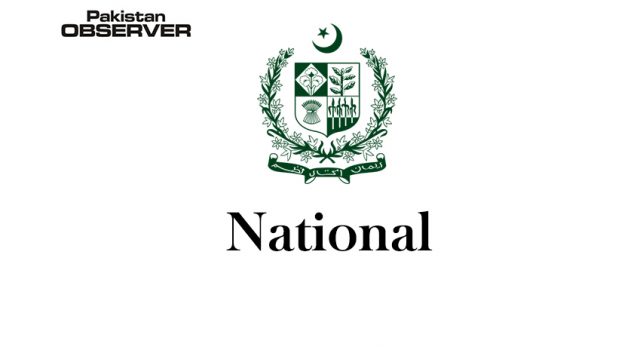Saeed Ahmad
Lahore
Renowned philosopher, poet, politician and barrister Allama Muhammad Iqbal had said: “Rise above sectional interests and personal ambitions, pass from touch spirit, as matter is diversity, spirit is life, unity, and light. In another saying of Iqbal which reads as: “people who don’t have any control over their thinking power, are likely to be destroyed by the freedom of thought. If thought is not mature, then liberty of thought becomes a technique of converting men into animals.”
Highlighting his philosophy regarding self-respect and recognition (Khudi) Iqbal projects the aim and object of ego that it was not to determine something, but is to become something. Popularly called the ‘Spiritual father of Pakistan’, Allama Dr Muhammad Iqbal for being learned and esteemed in his knowledge, was acknowledged by the people as ‘Allama’ Iqbal, and in 1922, King George-V of England, made him a knight by honouring him with the title of Allama ‘Sir’ Muhammad Iqbal. He was given five awards. Likewise, as a result of his prolific, immense writing in Urdu and Persian, he was tagged as the ‘Poet of the East’.
It is pertinent to mention here that Iqbal was the one who coined the ideology of ‘Two Nation Theory’ which eventually led to the Indo-Pak partition. He was a key member of the All-India Muslim Leauge, and his famous speech at the Allahabad meeting (session) is widely considered as a breakthrough turn and moment for the creation of Pakistan. Joining hands with Jinnah, Iqbal spearheaded the meaningful founding principles of Pakistan Movement. His notable works include Asrar-e-Khudi, Payam-e-Mashriq, Rumuz-e-Bekhudi, Zabur-e-Ajam and Javed Nama.
He was also the author of popular Indian hymn ‘Saare Jahan se Achha’. The Renowned scholars, poets, historians, educationists and people belonging to multiple fashions and walks of life are getting torch bearing guidance from Iqbal’s modern Islamic philosophy, while teaching the thoughts of the ‘Poet of the East,’ which is illuminating Muslim society and humanity. It’s also necessary to spotlight Iqbal’s fondness for the 13th century scholar and Sufi poet, Jalaluddin Rumi, who is buried in Konya, also called the town of Dervishes.
The extent of spiritual influence Rumi had on Iqbal was such that there is a memorial placed near Rumi’s burial place, which says: “The memorial has been erected to commemorate the national poet of Pakistan and a great thinker, Muhammad Iqbal, within the presence of his esteemed spiritual healer and mentor Maulana Jalaluddin Rumi.”Noted professor and expert on Iqbal’s philosophy, Dr. Muhammad Asif Awan told APP that Iqbal was the epitome of intellectual thought and wisdom of philosophy.
His Islamic thought, philosophy and legacy not just hold vital characteristics, but gives hope and mellows the hearts of people from the sub-continental region by giving them the title of Mard-e-Momin, Qalander which is illuminating the thoughts of the youth particularly, he asserted. To a query on Iqbal’s ‘Ideology of Khudi,’ he explained that in this concept, Iqbal reveals that how self recognition of man realises him that who am I? what am I here to do? And what is my role for myself and my people, community, and humanity as a whole, across the great stretch of the cosmos.
“As we commemorate Iqbal’s birth anniversary on November 9, it must be realized that he is amongst Pakistan’s intellectual pillars,” he said. It is worth mentioning here that the ‘Reconstruction of Spiritual Thought in Islam,’ is a book (compilation) of lectures, delivered by the great Iqbal on Islamic philosophy, published in 1930. ‘Poet of the East’ delivered these lectures in Hyderabad, Madras, and Aligarh (now in India). The last chapter of this compilation is “Is Religion Possible”, and was added to the book from the 1934 Oxford Edition onwards.
In ‘Reconstruction,’ Iqbal concerned a re-examination of the intellectual foundations of Islamic philosophy. Famous Scottish historian and orientalist Sir Hamilton Alexander Rosskeen Gibb known as (H.A.R. Gibb) in his various books and lectures opines that most of English and French writers have failed to submit an insightful observation of religion by defending or confronting it with contemporary thinking. But the outstanding exception in this study is Sir Muhammad Iqbal, who in his six lectures on The Reconstruction of Religious Thought in Islam explains the outright through the question of reformulating the basic ideas of theology” and demands “a fresh examination of the basics of religious belief”.
It is pertinent to mention here that Allama Iqbal in his book ‘Reconstruction of Religious Thought in Islam’ narrates that religion stands in great need of a rational foundation of its ultimate principles, than even the dogmas of science. Science may ignore a rational, metaphysics indeed it has ignored it so far. Religion can hardly afford to ignore the search for a reconciliation of the oppositions of experience and a justification of the environment in which humanity finds itself, Iqbal emphasizes. Quoting professor Whitehead in his book, Iqbal further says that he has actually remarked that ’the ages of faith were the ages of rationalism,’ and to rationalize faith was not to admit the superiority of philosophy over religion. Iqbal’s ideology, even today scales up the spiritual journey of man in numerous stages and reflects on the evolution of humanity and society.










